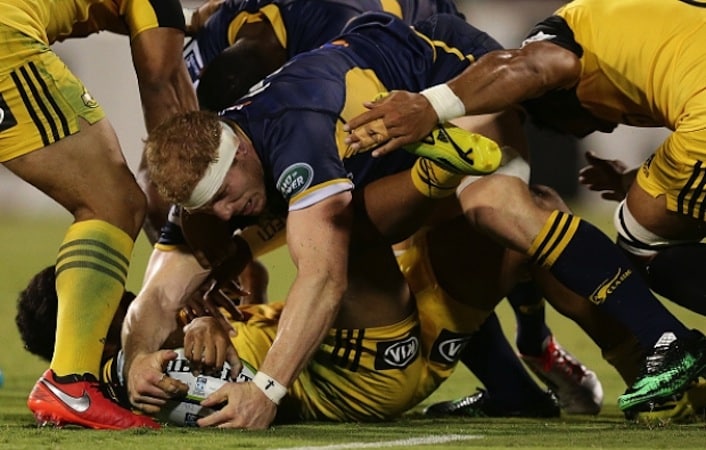Former England flyhalf Stuart Barnes says rugby union’s zero-tolerance approach to head contact will make the sport more like rugby league.
In a change to laws, World Rugby has redefined illegal (high) tackle categories and increased sanctions to deter high tackles via a law application guideline.
This has applied at all levels of the game since 3 January, introducing minimum on-field sanctions for reckless and accidental contact with the head, effectively lowering the acceptable height of the tackle. The guideline will be supported with a global education programme.
Writing in his column for The Times newspaper, Barnes said World Rugby’s rules would have unintended consequences that could ‘transform the sport as a spectacle for the worse’.
He was particularly pointed in his criticism of the line of the rules which said ‘in making contact, the player knew, or should have known, that there was a risk of making contact with the head of an opponent but did so anyway. This sort of contact also applies to grabbing and rolling or twisting around the head/neck area’.
‘Here we have moved from the tackle to the breakdown and it is in this tangled area of the sport that the zero-tolerance approach threatens the appeal of the game.
‘The neck rolls, only recently such an ugly part of the sport, did not arise from the spiteful minds of a few players with WWE aspirations. The act is one of the few ways in which the team second to the breakdown can compete for possession.
‘When the first man to the contact jams himself into the limpet position – legs wide apart, torso blocking the ball off from the other side with his head inevitably close to the ground – he is just about immovable, hence the growth of wrestling techniques.’
Barnes said it was that first man to the breakdown who was putting his head into the dangerous situation, but the new rules would mean that such players were protected and would kill off the breakdown contest.
‘The edict is a charter for him to be unchallenged at the point of tackle. Without a contest at the breakdown, rugby union could become a variant of rugby league.
‘It will be well-nigh impossible to move the specialist (except perhaps at the highest international levels, where opposing players arrive at the tackle at pace and in numbers to knock him from his position before he settles into the groove), so defenders will span the width of the pitch without even thinking about competing. A scrap for possession happened with regularity before this week.’
Barnes said the word turnover could now be removed from the rugby vernacular, replaced on the field by an ‘endless loop of recycled ball with support runners committed to being the first man over the ball and, therefore, too close to the carrier to receive the offload’.
Barnes said a better move would be to bring in the trial laws from last season’s New Zealand Cup, which stopped players playing the ball on the ground and made counter-rucking more important.
World Rugby: Law changes to protect players
Photo: Mark Metcalfe/Getty Images





